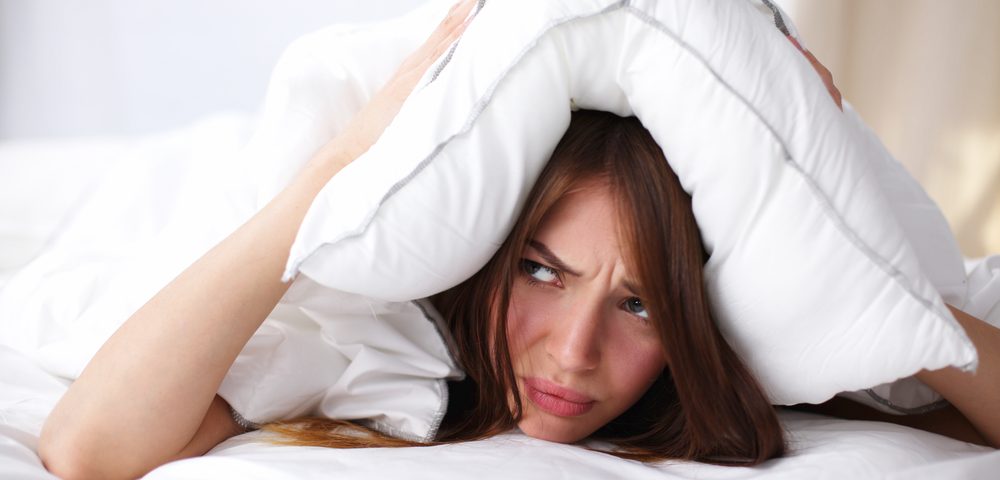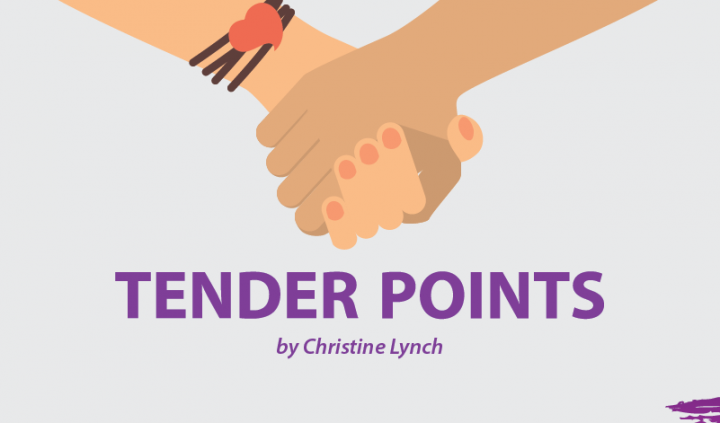No matter what time I go to bed at night, I have difficulty getting up in the morning. Whether it’s 7 or 9 or 11 a.m., I always wish I could have more time under the covers. Some days I’m sure it’s fibromyalgia-related. Other days I’m just as sure it’s not.
Often, my reluctance to endure another day of pain is at the heart of the issue. The inevitability of pain is a powerful contributor to delaying the start of my day as long as possible. As if this was not enough, I have additional reasons as well.
Just as many people with fibromyalgia do, I suffer from sleep apnea. What this means is that I awaken periodically throughout the night because of lack of oxygen. I don’t fully awaken, just enough to take a deep breath. However, that constant interruption prevents adequate REM sleep, the state in which the body heals itself and restores its energy. It leaves sufferers feeling unrested, even after many hours of sleep.
I’m not a candidate for a CPAP (continuous positive airway pressure) machine — the most common and effective treatment, because I have problems with my sinuses. When I attempted to use one of these machines, I experienced pain and swelling in my face, so I decided that lack of sleep would be less unpleasant. I am chronically sleep-deprived because my condition hasn’t been treated. I often fall asleep midday, and I routinely awaken in the morning just as tired as when I went to bed.
Unfortunately, I’m unable to tolerate the classes of medication that promote sound sleep. Even natural supplements are of no help to me. For example, melatonin makes most people sleepy, whereas it makes me depressed. Exercise and midday sunshine are the only things that appear to improve my quality of sleep. On good days, they are both quite easy to get. On bad days, not so much.
Of all the possible causes of my difficulty rising in the morning, depression is by far the most common and the most unpleasant for me. Oversleeping is a common symptom of depression and is often a clue that a depressive episode is in progress or about to begin. Adding to the depression (or perhaps the underlying cause) is lack of motivation. Even though I have the luxury of being retired and the freedom to get up when I wish, the downside is that the absence of a job also includes the absence of motivation to get up in the morning.
Ironically for me, a chronic worrier, having an important reason to get up in the morning can result in an inability to get to sleep the night before — making my mornings more challenging, rather than less. The solution will be to find a happy medium between the two. Translation: having something enjoyable, but not stress-inducing, to do the next day, and something that doesn’t require my getting up too early.
Arranging my life with this goal in mind and working around my symptoms has become my career. It’s a challenge to find stimulating activities that don’t require my presence early in the morning. It’s even more challenging to explain my requirements to the other people who may be involved. Healthy people often interpret absences as a lack of interest. It takes dedication and determination to convince them otherwise.
Perhaps one day I’ll find the ideal solution — challenging activities that cause me to awaken each day eagerly — but not worrisome enough to keep me awake at night. Better yet, maybe medical science will come up with a non-pharmaceutical approach to sleep apnea and depression — or a cure for fibromyalgia. In the meantime, forgive me if I yawn.
***
Note: Fibromyalgia News Today is strictly a news and information website about the disease. It does not provide medical advice, diagnosis, or treatment. This content is not intended to be a substitute for professional medical advice, diagnosis, or treatment. Always seek the advice of your physician or other qualified health provider with any questions you may have regarding a medical condition. Never disregard professional medical advice or delay in seeking it because of something you have read on this website. The opinions expressed in this column are not those of Fibromyalgia News Today, or its parent company, BioNews Services, and are intended to spark discussion about issues pertaining to fibromyalgia.



My symptoms, exactly–all of them. I have had fibromyalgia for TEN years now. Fortunately, Lyrica has been a godsend for me–one of the very lucky few. “Extreme Gardening” has been my preferred exercise during the spring, summer, and fall; wintertime is still an unsolved problem. Does supplemental oxygen help?
Great question, Carl. I don’t think there’s an answer yet, although I’ve read a few studies involving a small number of subjects that did report some improvement. But the medical community needs much more than this to be convinced. Hopefully, more research will be done. Wouldn’t it be wonderful to have something that works without producing side effects?
As a nurse I want to encourage you to try different masks for the apnea. Not only are you missing REM sleep you are starving your heart and brain from oxygen and it can take a toll on body. It really is quite serious. I have a love hate relationship with my APAP and sometimes can’t do it but one the days I do my whole world is different.My machine has a delay setting which helps me go to sleep without air bothering me. As far as the fibro well gabapentin helps as does marijuana. I do not smoke but make tea. Take care.
I have had fibro for about 13 years. I am now retired, and it makes it much nicer to not have to force myself thru the day with smiles all of the time while experiencing so much pain.
I have gotten help with Sevalla, for the fibro, CoQ10 for energy(something that the body produces anyway), and my wonderful chiropractor evrey 3 weeks. She does more than adjust my back. She actually treats my fibro. Wth those three things, I have less pain and can function at least half the day. Then that’s it for much serious actvity. It is much better than the alternative.
Good Blog.